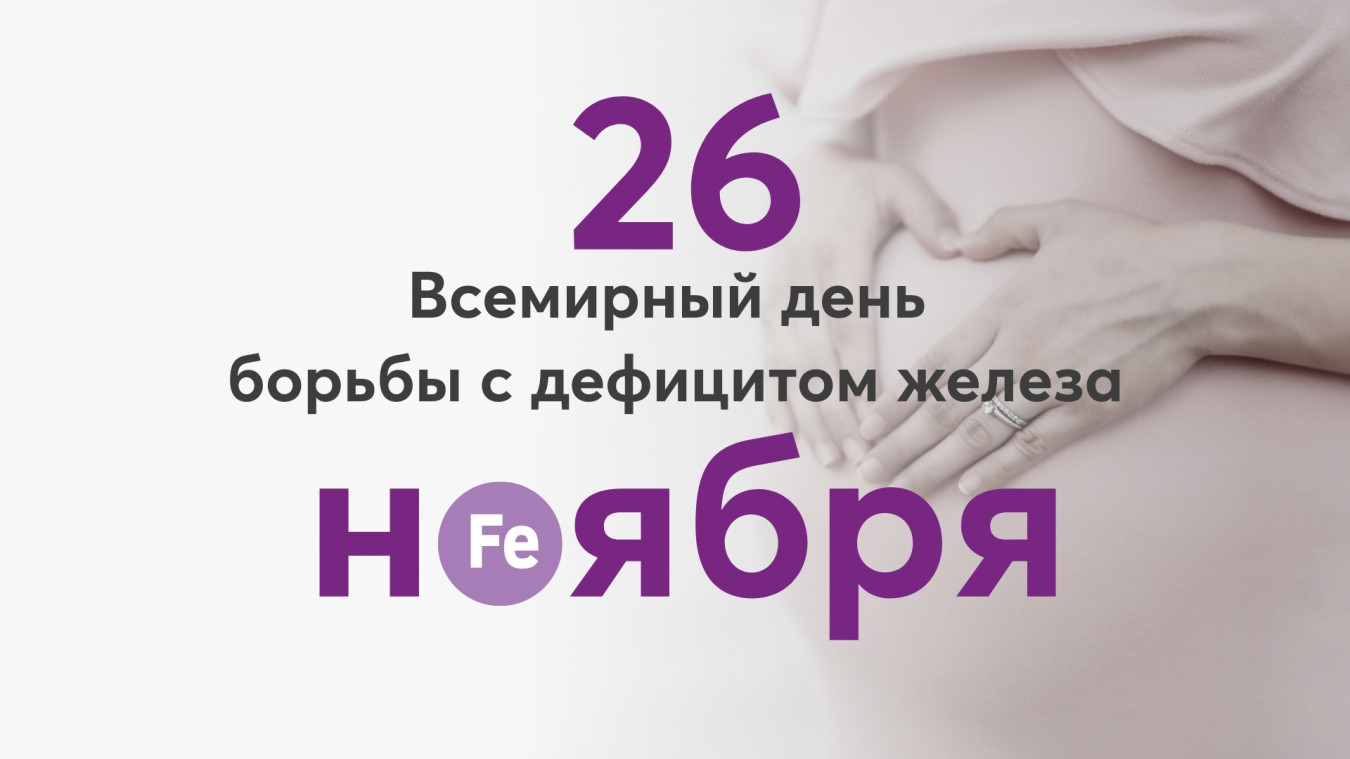Egis’s website uses cookies to run our website, improve the user experience and monitor the activities. You can customize the use of the cookies by adapting the settings.

Common complaints such as constant fatigue, brittle nails, and hair loss often mask a serious problem—iron deficiency. According to the Ferritin-2023 study, up to 68% of women of reproductive age in Russia face this condition, which can remain undiagnosed for years, silently affecting heart function, the nervous system, and reproductive health[1] .
Epidemiological studies show that up to 80% of expectant mothers[2] experience iron deficiency, and 36% develop anemia[2]. Lack of iron in the mother leads to fetal hypoxia and can cause dramatic changes in the development of the child’s nervous system.
Experts call this condition a “postnatal price,” which manifests in increased risks of developmental delays, ADHD, and anxiety or depressive disorders later in life[3].
“For normal development of the fetal nervous system, enormous amounts of oxygen and energy are required. Neuronal differentiation and brain formation are impossible under iron deficiency,” experts explain. “That’s why it’s crucial for pregnant women to detect and correct iron deficiency as early as possible.”
“Our research clearly shows that latent iron deficiency is not a theoretical issue but a harsh reality for the majority of women,” says Nikolay Stuklov, MD, Professor, Head of Hematology at RUDN University.
“The danger lies in the body ‘saving’ iron for vital processes, leaving women living for years in a hidden deficiency state without help. That’s why ferritin screening for women of reproductive age must become routine practice for therapists and gynecologists.”
The symposium took place on November 19 with Egis’ support. “We often hear from patients: ‘I’m just tired’ or ‘It’s my age.’ But behind this may be iron deficiency, which not only reduces quality of life but poses a real health threat,” notes Maria Klepikova, PhD, Associate Professor at RMANPO.“ A simple ferritin test is the first and most important step. Levels should not fall below 30 mcg/L, and for women planning pregnancy, we recommend a target of at least 60 mcg/L.”
Recognizing the social importance of this issue, Egis focuses on educational and scientific projects. The Ferritin-2023 program was named Best Social Project in Russia in 2024. Thousands of women in 60 cities were able to check their ferritin levels for free, providing unique data on the scale of the problem.
“For us, it’s essential to work proactively—not just react to the problem but systematically change the approach,” emphasizes Olga Dukhanova, General Director of Egis-RUS.
“Through physician education, patient awareness, and support programs, we make iron deficiency a shared responsibility for the medical community, the state, and socially responsible businesses.”
Experts at the symposium shared key recommendations:
Learn more and assess your risks at superiron.ru.
[1] Стуклов Н.И., Ковальчук М.С., Гуркина А.А., Вареха Н.В. Программа «Ферритин 2023» по изучению
популяционных показателей ферритина сыворотки у женщин в Московской агломерации (2023–2024 гг.) // Акушерство и гинекология: новости, мнения, обучение. 2024. Т. 12, № 3. С. 91-101
[2] Клинические рекомендации МЗ РФ "Железодефицитная анемия", 2024; Коновалова Е.Н. и соавт. Акушерство и гинекология. 2014
[3] Ших Е.В., Махова А.А. Железодефицит - катастрофа для нейрогенеза. Медицинский совет. 2022;16(5):82-90. https://doi.org/10.21518/2079-701X-2022-16-5-82-90